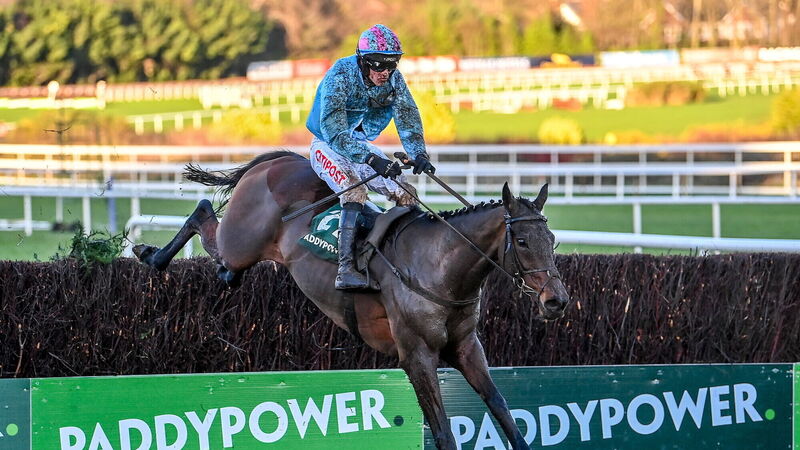Ian Mallon: What if Flutter is right about regulation’s ‘unintended consequences’?

Meetingofthewaters, with Danny Mullins up, jump the last on their way to winning the Paddy Power Steeplechase on day two of the Leopardstown Christmas Festival at Leopardstown Racecourse in Dublin. Pic: David Fitzgerald, Sportsfile
Flutter Entertainment, the company formerly known as Paddy Power-Betfair, will next week make a trading statement ahead of its January 29 listing on the New York Stock Exchange.
The Dublin-based firm will announce a strong 2023 – ahead of its springtime financial statement – in particular the performance of US market-leaders FanDuel and PokerStars, with global revenues expected to exceed €10bn.









